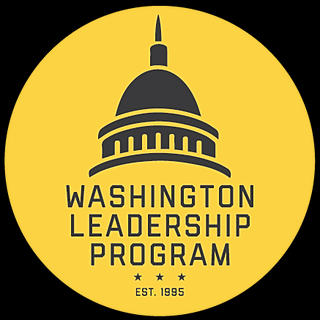WLP 2016 - Week 3 - What do we live for?
- WLP
- Jul 12, 2016
- 3 min read
What would you die for?
Each morning, I walk past the statue of General Andrew Jackson and run into this question. The bronze statue erupts into motion, revealing a bucking horse frozen mid-charge and a man with a piercing steel gaze. He sits proudly in military apparel upon a rearing horse, hat tipped defiantly toward an unseen enemy. His gaze is unescapable and unforgiving as he stares into battle and the possibility of his own death.
DC is a city of immortalized heroes, a place filled with tributes to those who laid down their lives for their beliefs. As I stumble upon the memorials to these idealists, I cannot help but reflect upon my own values and question what it is that I live for and what I would die for.
While I might not have the answer those questions yet, my time in DC has definitely helped me reflect on them. Indeed, I am constantly forced to challenge myself and my beliefs as I interact with people and learn more about the political realm.

For instance, this week we met with Ajit Pai, a Commissioner at the FCC. Before meeting with Ajit, I was unsure whether I would be able to connect with him on a personal level since it seemed as if he and I held differing beliefs. However, almost immediately after entering the room, I completely disregarded that preconception. I realized with a jolt that even though our political views might be different, the underlying values that drove us to those views and the motivation behind those opinions were completely aligned.
I was able to experience this also through our meeting with Neal Patel, Communications Director for Senator Heller, and KJ Bagchi, Director of AAPI and Small Business Engagement at the DNC. Neal and KJ affiliate themselves with different parties and have diverging beliefs on politics, but they were easily able to discuss the politically charged topic of the upcoming election and view the situation from the other’s perspective.

I came to DC looking for answers for myself. I wanted to figure out what it is that I believe in, however what I have learned so far is that no matter what you do, there will always be an opposing side. Another perspective. My internship focuses on healthcare policy enactment, but after having absorbed so much about how the system works, I realized I am nowhere near a resolution, even within myself and my own beliefs.
If I’m not sure what I believe, how do I decide my future goals? Meg Kudchadkar and Noor Rahman talked to us about their own life trajectories and the challenges they faced getting to a happy point. Meg, a lawyer, talked to us about her troubles finding a stable job during the 2008 recession. Even when she did find a job, she wasn’t satisfied. Her passion for education reform in low-income communities led her to a fulfilling career as a 2nd grade teacher with KIPP DC. Noor took a couple of years before law school to explore various interests and learn what she did not want to pursue. Her hardships helped her narrow her scope in deciding her values.

At the end of this week on Friday, July 1st, 2016, Dhaka’s Holey Artisan Bakery was attacked by six militants. Two fellow Emory students, Faraaz Hossain and Abinta Kabir, and one student from UC-Berkeley, Tarishi Jain, made the ultimate sacrifice because of people who did not understand the value of beliefs different from their own. As one of his last acts, Faraaz defended his belief in loyalty by standing beside his friends even when he was allowed to leave. Because of their citizenship, Abinta and Tarishi did not even get that chance.
It is a privilege to be open-minded, to learn from a diverse setting, and to stand up for a cause. Our time in DC is not just one of hard work, but one of internal growth. Here, we ask ourselves:
What do we live for?
Shruti Gupta & Safiyah Bharwani
Centers for Medicaid and Medicaid Services, Dept. of Commerce respectively
Emory University



Comments